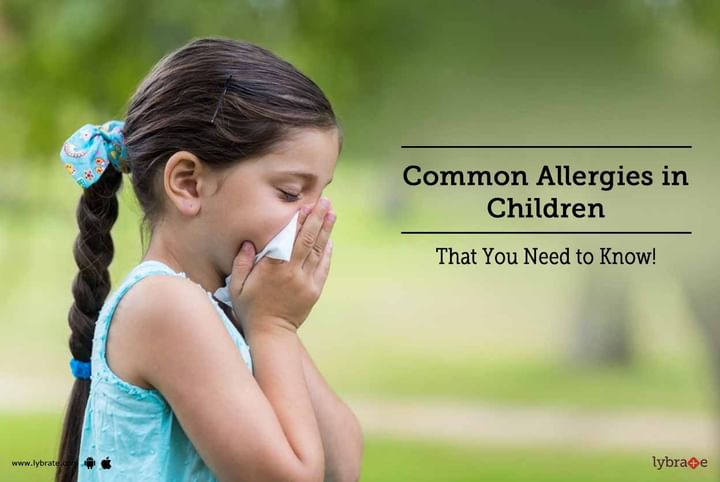Common Allergies in Children - That You Need to Know!
A rash on your child’s body or their regular cough bouts can sometimes be triggered by an allergy. We can excuse it by calling it a common flu or a heat rash, but the reason behind it might be something you are not aware of. Your child might be allergic, and it is imperative for you to find out that exact thing your child is allergic to, it can be dust, nuts that you may think is beneficial for your child’s health or even the fabric of the clothes you put on them. Allergies are caused when children come in contact with allergens, which can he inhaled, injected or even eaten unknowingly. If you see any of the symptoms of allergies, consult your doctor at the earliest and do not treat it lightly.
Some common triggers for allergies
These are divided into four groups
- Foods: Certain foods like peanuts, eggs, milk and it products which you feed your child might be triggering their allergy.
- Outdoors: When kids play outside pollens from trees or flowers might causes allergies. Even insect bites and stings are a major trigger
- Indoors: Animal fur or hair and even dust mites and mold that exist in your house can trigger an allergy
- Irritants: Common irritants like cigarette smoke, perfumes or even car exhaust should be watched out for.
Symptoms of common allergies
- Nasal Congestion: It is referred to as stuffy nose, which is very common in kids. Allergies are the most common cause of chronic nasal congestion (a stuffy nose) in children. Sometimes a child’s nose is congested to the point that he or she breathes through the mouth, especially while sleeping.
- Allergic rhinitis (hay fever): It is also common and its symptoms include a runny or itchy nose and constant sneezing. A child with allergies may also have itchy, watery, red eyes and chronic ear problems. Even though it’s commonly known as “hay fever,” allergic rhinitis isn’t triggered by hay and doesn’t cause fever.
If you suspect your child has an allergy, make an appointment to consult a specialist. Start a diary before the appointment and keep track of what symptoms your child experiences and what you think causes them.



+1.svg)
